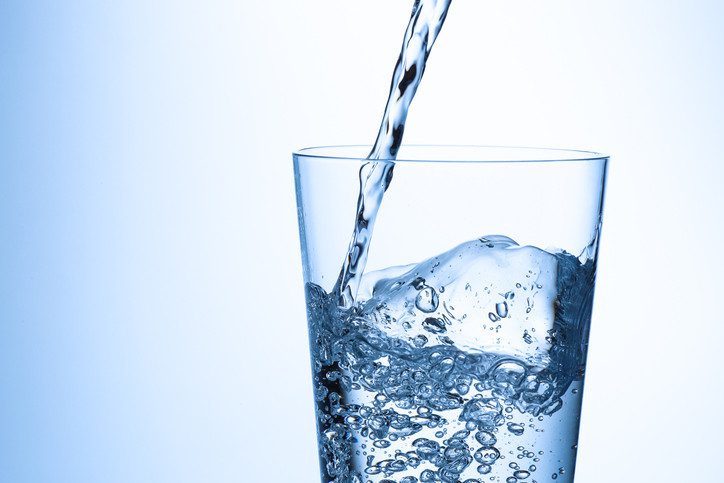How Much Water Should You Drink Daily. here is detailed information of benefit and Water intake per day/ daily by age
The body constantly loses water throughout the day. Mainly through urine and sweat, but also through regular bodily functions such as breathing. To prevent dehydration, you should drink and eat plenty of water every day.
There are many different opinions on how much water you should drink each day.
Health experts typically recommend eight 8-ounce glasses, which comes in at around 2 liters or half a gallon per day. This is called the 8 × 8 rule and is very easy to remember. However, some experts believe that you should sip water constantly throughout the day, even when you are not thirsty.
As with most things, this depends on the individual. Many factors (both internal and external) ultimately affect the amount of water needed.
This article takes a look at some water intake studies to separate fact from fiction and explains how to easily stay well hydrated for your individual needs.
You might need more water than someone else. How much water you need also depends on:
- Where you live. You will need more water in hot, humid, or dry areas. You’ll also need more water if you live in the mountains or at a high altitude (3Trusted Source).
- Your diet. If you drink a lot of coffee and other caffeinated beverages you might lose more water through extra urination. You will likely also need to drink more water if your diet is high in salty, spicy, or sugary foods. Or, more water is necessary if you don’t eat a lot of hydrating foods that are high in water like fresh or cooked fruits and vegetables.
- The temperature or season. You may need more water in warmer months than cooler ones due to perspiration.
- Your environment. If you spend more time outdoors in the sun or hot temperatures or in a heated room, you might feel thirstier faster.
- How active you are. If you are active during the day or walk or stand a lot, you’ll need more water than someone who’s sitting at a desk. If you exercise or do any intense activity, you will need to drink more to cover water loss.
- Your health. If you have an infection or a fever, or if you lose fluids through vomiting or diarrhea, you will need to drink more water. If you have a health condition like diabetes you will also need more water. Some medications like diuretics can also make you lose water.
- Pregnant or breastfeeding. If you’re pregnant or nursing your baby, you’ll need to drink extra water to stay hydrated. Your body is doing the work for two (or more), after all.
Benefits of Drinking Water Daily
Water helps to keep you healthy in a number of ways. When you drink enough, it:
- Firstly Helps you remove waste from your body through your urine, stool, and sweat
- Your body stay a normal temperature, rather than overheating
- Helps protect delicate tissues in your body
- Keeps your joints cushioned and lubricated
Tips for avoiding dehydration
It’s not just water that keeps you hydrated. All beverages containing water contribute toward your daily needs. And it’s a myth that caffeinated beverages or those containing alcohol are dehydrating because they make you urinate. They do, but over the course of the day, the water from these beverages still leads to a net positive contribution to total fluid consumption.
Of course, there are many reasons why water is still the better choice. Remember, sugary drinks can lead to weight gain and inflammation, which can increase your risk for developing diseases such as diabetes. Too much caffeine can give you the jitters or keep you from sleeping. And, alcohol intake should be limited to one drink per day for women, and 1-2 drinks per day for men.
To ward off dehydration, drink fluids gradually, throughout the day. An easy way to do this is to have a drink at each meal, as well as socially, or with medicine.
And know that you also get fluids from water-rich foods, such as salads, fruit, and applesauce.

Recommended intake by age
There is no fixed amount of fluid recommended by age, but some patterns emerge among healthy individuals doing a moderate amount of activity in a temperate climate.
The following sections show the average water intake for people of different ages.
Infants
Experts do not recommend plain water for infants before the age of 6 months Trusted Source.
The CDC says that if infants over 6 months of age need additional fluid on hot days, they can consume water in a bottle. However, their primary form of fluid and calories should be breast milk or formula.
Children over 12 months of age
Children over 12 months of age should be encouraged to drink waterTrusted Source in the following situations:
- as part of their daily routine (for example, after brushing their teeth and before, during, and after playtime at school)
- when the weather is warm
- as an alternative to sweetened drinks and juices
Most Importantly Children should limit their juice consumption to one glass per day.
Parents are advised to keep a pitcher handy to encourage healthy. Water-drinking habits, and schools should have water fountains or equivalent facilities.
Adults ages 19–30 years
The recommended adequate intakes of total water from all sources each day for most adults between 19 and 30 years of age are:
- 3.7 liters (or about 130 fl oz) for men
- 2.7 liters (about 95 fl oz) for women
People who are pregnant are likely to need an extra 0.3 liters (10 fl oz). Those who are breastfeeding will need an additional 0.7 to 1.1 liters (23–37 fl oz).
Older adults
adults may be at risk Trusted Source of dehydration due to health conditions. medications water intake daily loss of muscle mass, reduction in kidney function, and other factors.
Older adults who are well hydrated have been found to have:
- fewer falls
- less constipation
- a lower risk of bladder cancer, in men
Dehydration has been linked to a higher frequency of:
- urinary tract infections
- confusion
- kidney failure
- slower wound healing
Sources of water
People can consume water by:
- drinking water and other fluids
- eating foods high in water, such as fruits and vegetables
Some surveys suggest that around 20 percent Trusted Source of water intake comes from food, and the rest is from fluids. This depends on diet. Water intake daily A higher intake of fresh fruit and vegetables will mean a higher intake of water from foods.
Here are some examples of the water content Trusted Source of different foods and fluids:
| Water content as a percentage (%) | Food or drink |
|---|---|
| 100% | water |
| 90–99% | fat-free milk, tea, coffee, juicy fruits (e.g., strawberries and cantaloupes), vegetables such as lettuce, celery, and spinach |
| 80–89% | fruit juice, yogurt, fruits such as apples, pears, and oranges, vegetables such as carrots and cooked broccoli |
| 70–79% | bananas, avocados, baked potatoes, cottage cheese |
| 60–69% | pasta, beans, peas, fish, chicken breasts, ice cream |
| 30–39% | bread, bagels, cheddar cheese |
| 1–9% | nuts, chocolate, cookies, crackers, cereals |
| 0% | oils, sugars |
Hydration during exercise
During exercise, people may need to consume more water than usual. The amount they should drink depends on:
- the type and intensity of the activity
- Secondly environmental factors, such as temperature
- the size and muscle mass of the individual
Older guidance from the American College of Sports Medicine (ACSM)Trusted Source advises drinking water during activity to prevent dehydration that leads to a decline in body weight of more than 2 percent and changes in electrolyte balance.
These changes, water intake daily researchers say, can lead to reduced performance.
However, a study published in the International Journal of Exercise Science concludes that a loss of up to 4 percent Trusted Source of water has no effect on real-world sports performance.
This means that, while it is important to be hydrated before a workout — and a person should aim to replace fluid lost after exercise — drinking water during a workout may not be essential. However, if people exercise for long periods, they may benefit from consuming water or an electrolyte beverage.
When should a person drink water?
Most of the time, the body’s sensitive natural mechanisms maintain appropriate fluid levels.
There are two main ways the body does this:
(1) through thirst, which tells a person to drink more water; and
(2) through urine output, in which the kidneys regulate. The water we consume by either emptying it into the urinary bladder or holding onto it in the blood plasma.
The kidneys also regulate the balance of electrolytes, such as sodium and potassium, in the body fluids. Additionally, they receive hormonal signals to conserve or release water into the urine. water intake daily If the brain detects changes in the concentration of the solutes in the blood.
What about eight 8-ounce glasses of water?
It is often said that people need to drink at least eight 8-ounce glasses of water per day. However, this is an overly simplistic answer to a complicated question.
The body is good at regulating itself Trusted Source, and water is no exception. The body is constantly working to maintain a balance of water coming in and water going out. Thirdly If a person drinks too much water, the body will excrete more. If they drink too little, it will excrete less.
In addition to body size and activity level. Similarly Other everyday factors can play a role in determining how much water a person should drink.
For example, consuming more sodium and protein means a person may need to drink more water. Conversely, eating a lot of fruits and vegetables means they may not need to drink as much.
Most of the time, the body will give a person cues that tell them to drink more or less fluid. The body even has a water-regulating hormone — arginine vasopressin — that manages thirst, fluid excretion, and the body’s water balance.
Symptoms include:
- lung congestion
- brain swelling
- headache
- fatigue and lethargy
- confusion
- vomiting
- seizures
- coma
- death
Hypernatremia is rare. When it does occur For instance, it usually affects endurance athletes, people with diabetes, and those taking certain medications.
Also Read : Funny Situations That Show That Being Positive Can Help You
Summary
Secondly The amount of water a person needs varies based on their age, size. water intake per day activities, and the temperature.
Although many people follow the eight-by-eight rule. In Other words it may be outdated and overly simplistic. However, The body is incredibly good at maintaining its water balance. In this paragraph It urges people to drink more by making them thirsty.
People who work outdoors in hot climates or exercise vigorously may need to consume more water. Thirdly So They can also get fluid from foods high in water, such as fruits and vegetables.
In conclusion Above all are detail of water intake on daily basis






